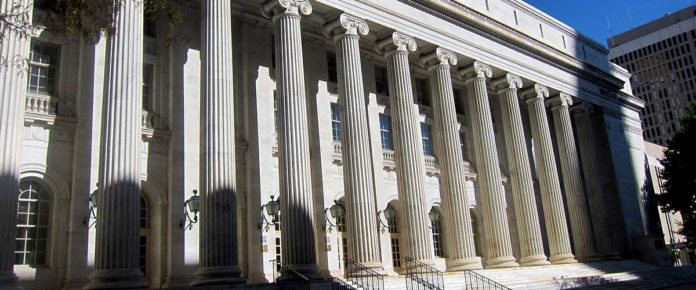A federal appeals court has agreed to delay an injunction that would bring the Kansas Highway Patrol under court oversight and ban troopers from using a technique called the “Kansas two step” to detain drivers and search for drugs.
Two judges from the 10th U.S. Circuit Court of Appeals signed an order delaying the injunction while the Kansas Highway Patrol appeals a federal court ruling that found the Kansas two step violated the Fourth Amendment rights of motorists.
The injunction took effect when it was signed on Nov. 20, but many of its requirements weren’t set to start for 60 days after the effective date
Without a delay of the injunction, the Highway Patrol argued that it would suffer irreparable harm while the case proceeds on appeal.
The Highway Patrol said in its brief that the injunction imposed by U.S. District Judge Kathryn Vratil not only interfered with its ability to investigate crime but also imposed costly administrative burdens that it can’t recover.
The appeals court considered several factors in deciding whether to keep the injunction from being imposed, including whether the Highway Patrol would be irreparably harmed and whether the agency was likely to succeed on the merits.
Lawyers for the American Civil Liberties Union said that the agency offered “only
conjecture and generalities” when arguing the injunction would hurt law enforcement.
The idea that the injunction interferes with KHP’s ability to enforce the law “not only speaks volumes on the KHP’s recalcitrance, it demonstrates a desire to continue violating this circuit’s law,” the plaintiffs argued in their brief.
“As KHP personnel acknowledged at trial, troopers must conduct themselves in accordance with the Constitution,” the ACLU lawyers argued in their brief.
“If appellant’s position is that KHP troopers are incapable of investigating crimes without violating the Constitution, then the agency’s problems go even deeper than this suit has revealed,” they said.
The ACLU said the agency’s claims about incurring expenses to comply with the injunction were unsubstantiated.
The agency asserts that it will have to hire more staff to develop and implement the protocols and systems necessary to comply with the injunction, but doesn’t describe why current staff are insufficient to carry out the court order, the ACLU argued.
Last summer, Vratil ruled that the so-called Kansas two step violated drivers’ rights to be free from unconstitutional searches under the Fourth Amendment of the Constitution.
Civil liberties advocates said troopers would use the two-step tactic to break off an initial traffic stop and attempt to reengage the driver in what would then be considered a consensual encounter and give them more time to search for drugs.
After issuing a ticket or warning and telling the driver to have a safe trip, the trooper would turn their body, take two steps toward the patrol car but return to the driver’s window to ask the driver to answer a few more questions.
The judge criticized the Highway Patrol for waging a “war” on motorists traveling on Interstate 70 through Kansas between Colorado and Missouri, two states where marijuana is now legal.
The injunction barred the Highway Patrol from using the two-step technique to extend traffic stops of motorists without reasonable suspicion or “without the motorists’ knowing, intelligent, and voluntary consent.”
The agency also is barred under the injunction from giving any weight to the fact that a motorist is traveling to or from a “drug source” or “drug destination” state when developing reasonable suspicion when making a traffic stop.
The injunction requires troopers to document all investigative stops and detentions. They also must document a driver’s consent to a search or to engage with a trooper after the conclusion of a traffic stop.
The injunction also requires that when troopers seek consent for a search, they must inform the motorists of their right to refuse and revoke consent at any time. The driver’s consent must be documented on a written form explaining those rights.
The Highway Patrol said the injunction “imposes a number of conditions on KHP troopers that even plaintiffs admit go beyond the requirements of the Constitution, hamstringing KHP troopers from performing their duties as allowed by law.
“And the administrative burdens the injunction places on KHP will drain resources — both staff time and money — that KHP could focus on other law enforcement priorities.
“Put simply, these requirements will interfere with KHP’s ability to enforce the law.”
















